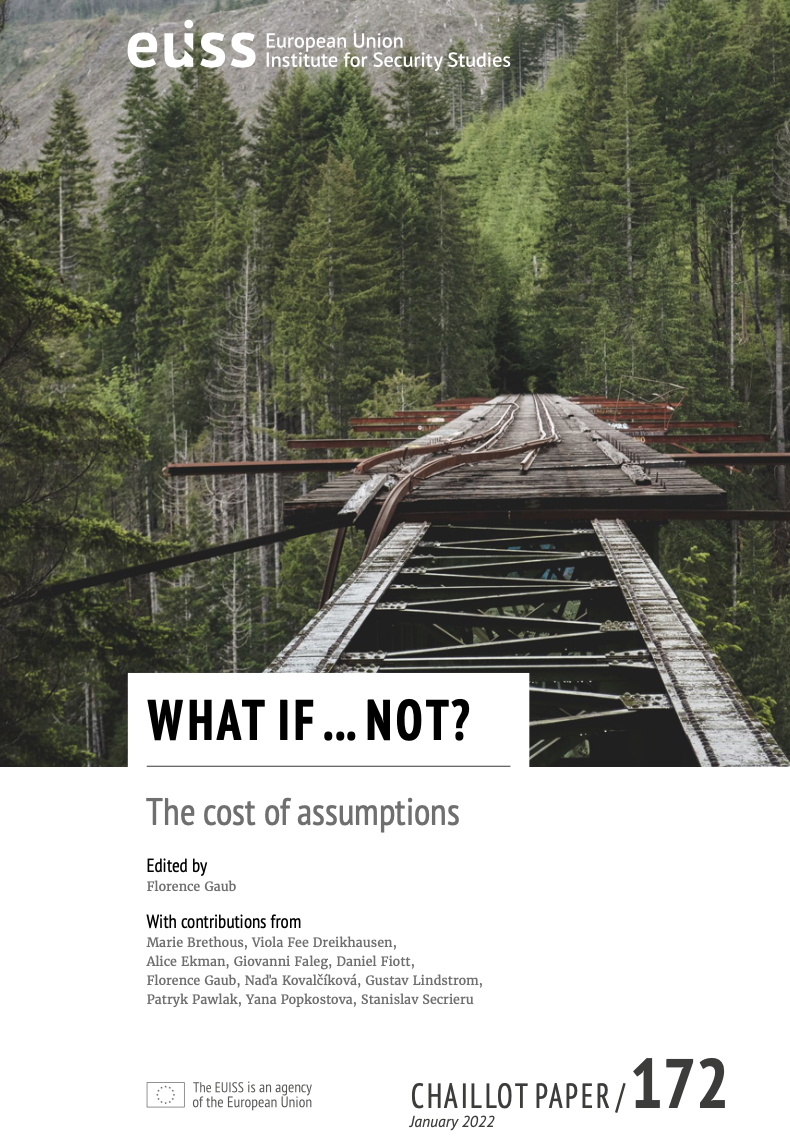The energy transition demands strong public-private partnerships and commitment to a more sustainable future.
With extensive and frontline experience across Governments, EU Institutions, Politicians, Private and Public Companies and Non-for-Profit Organisations ECEGA assists public and private institutions and businesses to design creative and powerful strategies for change, adjust to challenges, and capitalise on evolving opportunities in a carbon-constrained world.
We analyse, evaluate, solve and empower - contact us today for a strategic discussion on how to deliver tangible outcomes for you and your organisation.
- Public Policy and Sectoral Expertise: EU Regulatory Process and Procedure, Cross-commodity market trends, Geopolitics, Energy Policy, Energy Transition, Oil&Gas, Shale, Critical Raw Materials Hydrogen, Gender Mainstreaming
- Forward Policy and Business Intelligence and Forecasting
- Policy Development, Strategy and Compliance
- Risk, Relationship and Reputation Management
- Benchmarking, Stakeholder Mapping and Strategic Consulting
- Crisis Management and Issue Response, Meaningful Community Engagement
- EU Affairs, Government Relations and Liaison Training and Advice
- Environmental Risk Valuation and Business Restructuring in a Carbon-Constrained World
Geopolitics of power: EU’s power grid to unlock or to gridlock EU’s energy security, carbon neutrality and geopolitical remit
JUNE 2024
Yana Popkostova was commissioned by Confrontations Europe to analyse the geopolitical, economic and environmental issues of electrification in Europe.
L’analyse de Yana Popkostova, Directrice du Centre européen d'analyse énergétique et géopolitique, sur la nécessité d’investir dans un réseau électrique plus résilient et intégré, est à consulter sur le site de Confrontations Europe.
⚡️Geopolitics of power: EU’s power grid to unlock or to gridlock EU’s energy security, carbon neutrality and geopolitical remit
"Grid modernisation and expansion is a sine quo non condition for EU’s energy security, climate neutrality and geopolitical resilience".
The author is the director of the European Centre for Energy and Geopolitical analysis. She is the co-author of IRENA’s flagship report Geopolitics of the Energy Transformation: Energy Security, and a co-lead of the UNDP Critical Raw Materials Advisory Group. The views expressed are the author’s own.
⚡️Géopolitique du pouvoir : les réseaux électriques européens pour renforcer ou entraver la sécurité énergétique, la neutralité carbone et la mission géopolitique de l'UE
“Un réseau électrique paneuropéen mieux intégré permettrait une localisation optimale des capacités de production d’énergie renouvelable [et] des évaluations de l’adéquation des ressources à l’échelle du continent”.
L’autrice, Yana Popkostova, est directrice du Centre européen d’analyse énergétique et géopolitique. Elle est co-autrice du rapport de l’IRENA, Géopolitique de la transformation énergétique : sécurité énergétique, et co-responsable du Groupe consultatif sur les matières premières critiques du PNUD. Les idées exprimées sont celles de l’autrice et n’engagent qu’elle.
Geopolitics of the energy transition: Energy security
This report, developed under the IRENA Collaborative Framework on the Geopolitics of Energy Transformation, and co-authored by ECEGA's Yana Popkostova, provides new analysis to elicit informed and constructive dialogue on the evolving nature of energy security in the era of renewables.
ISBN: 978-92-9260-599-5
APRIL 2024
The acceleration of a renewable-based global energy transition represents our only option to ensure the world remains on a 1.5°C-compatible trajectory. However, this pathway relies on our collective ability to prioritise actions such as the modernisation and expansion of infrastructure, policy and market adaptation, and institutional and human capacity development.
As the world moves towards a renewables-based energy system, the nature and priorities of energy security will evolve in step with these essential elements of the transition. This report cautions against transposing the thinking from the fossil fuel era to a such a system, and places the well-being of people and the planet at the centre of the evolving energy security narrative.
It identifies multiple issues that should be systematically considered to guide national decision making on resource endowments and comparative advantages, as well as the existing and emergent threats to a highly complex and integrated new energy paradigm, as governments make significant investments in infrastructure for systems that are increasingly electrified, digitalised and decentralised.
Of craven dependencies and hasty strategies
The Geopolitics of net-zero amidst energy volatility and climate risk
Yana Popkostova was commissioned by the Federal Ministry of Defense of Austria to deliver a reflection on strategic risks ahead for Austria, Europe and the world on the path to net-zero.
In an unfolding Hobbesian world, strategic foresight is imperative to secure both growth and stability. Europe remains exposed to supply shocks, even as it ends its energy dependence on Russia, while the international order continues to crumble. At the same time, the green transition becomes an increasingly pressing issue.
THE POWER SHIFT
The impact of the low carbon transition on the oil and gas economy
The volume presents a comprehensive overview of the reconfiguration of global energy markets triggered by the Russian invasion of Ukraine and the Western response to the war, exploring future market and supply chain dynamics for oil, natural gas and coal, but also LNG, hydrogen, and minerals and metals. In particular, it focuses on how the world’s oil and gas majors and producing states might adapt to a carbon-constrained environment, placing the emphasis on energy resilience within a wider framework that considers ecosystems and climate prerogatives, as well as peace and security.
The paper proposes a series of targeted measures that the EU might pursue in the short, medium, and long term to enhance the bloc’s energy security and strategic resilience.
MARCH 2023EUROPE’S ENERGY CRISIS CONUNDRUM
Origins, impacts and way forward
JANUARY 2022A confluence of external and internal factors triggered the energy crisis that engulfed Europe in 2021. The crisis, which has led to a surge in energy prices and market turmoil, continues to be a major source of concern. The balance between the security, affordability and sustainability dimensions of the energy ‘trilemma’ has come under serious strain, with governments resorting to disparate measures to mitigate the impact on consumers.
As the EU accelerates its drive towards radical decarbonisation, it is imperative that it sets in place mechanisms to bolster its resilience and shield the green transi- tion against energy market volatility, while maintaining the vaulting ambition of cli- mate neutrality. The EU’s ability to man- age the process will be key to the success of the global net-zero trajectory.
This Brief explores the causes of the historic energy crisis that engulfed Europe in 2021, analyses its impacts and proposes strategic responses in the short, medium and long term to bolster the EU’s systemic resilience to energy market volatility in a context of radical decarbonisation. The overriding premise of the Brief is that the EU’s ability to transition to a carbon neutral economy while navigating the accompanying challenges and instability will foreshadow and inform processes across the globe, and predetermine the global net-zero trajectory.
* This Brief is based on previous analytical work conducted by the author in support of internal deliberations by the European Commission on the topic in early October 2021 that informed policy processes.
WHAT IF ….. CLIMATE
NEUTRALITY IS NOT ENOUGH?
2027
JANUARY 2022
What if our assumption for the future turn out to be wrong? Read this controversial and thought-provoking leap into a future where the EU is firmly on the road to carbon-neutrality, yet the ecosystem devastation surrounding it exposes the deficiency of the febrile obsession with decarbonisation and emissions reduction. Shuddering but also policy-informative scenario that aims to shape processes today to avoid a bleak awakening tomorrow.
Disclaimer:The scenario was originally published as part of the 'What if...not?' Chaillot paper series of the European Union Institute for Security Studies [EUISS) in January, 2022. All rights reserved.
Pale, Male and Wrong: The Missing Link in Global Low-Carbon Transition Efforts
This reports aims to highlight the current lack of cognitive diversity within the energy sector, exploring statistics and drawing conclusions on specific impediments faced by women in the sector; reiterate research findings on the power of diversity to produce better business results focusing on the gender parity co-benefits for the energy industry; and examine best practices and strategies to foster rebalancing of the industry’s talent pool. This is accomplished employing both a moralistic approach – gender equality is a matter of social fairness and human rights; but also business pragmatism – highlighting that the magnitude of the challenge calls for cognitive diversity and creativity across the energy value chain to sustain the disruptive pressures and perform in a carbon-constrained policy and economic reality. The author also argues that in a world inflamed by the temptations of populism, maintaining societal or workforce divisions will only compound the transition trajectory. Ignoring the alarming signs around the changing societal paradigms and discounting the proverbial issue of societal cohesion in energy transition scenarios and roadmaps will render the 2030 and 2050 milestones meaningless and discredit the end of century climate neutrality and prosperity vision.
Energy transition | Diversity in Energy | Energy-Climate-Gender Nexus | Women Empowerment & Inclusion | Women in Energy
MARCH, 2020












